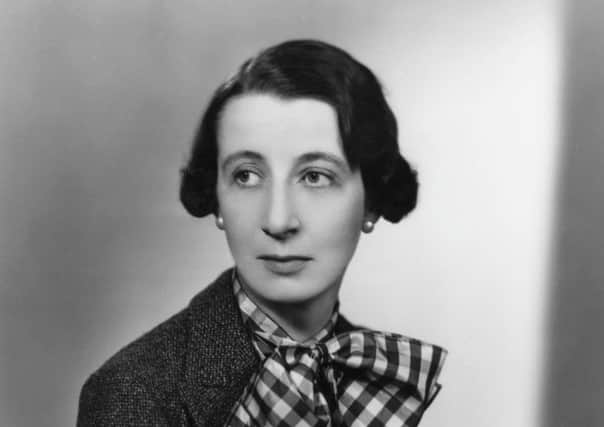Joyce McMillan: Crime writer Josephine Tey's double life


She was born Scottish at the very height of Britain’s imperial power and pride. She belonged to a class that was on its way up, increasingly confident that education and hard work could – and would – propel them far from the poverty-stricken life they had known a generation before; MacKintosh’s father grew up a Gaelic speaker, on a remote croft in Wester Ross.
And she was destined, like all of her age, to live through two world wars that would change almost everything. She belonged to a generation of women many of whom were left single after the First World War, and whose lives often took unconventional paths as a result. And the experience of living through the war years only strengthened her British patriotism, often expressed in her love for the England where she had trained and worked as a teacher, before her mother’s death called her back north in 1923, to keep house for her elderly father.
Advertisement
Hide AdYet the experiences of her youth had given this quietly-spoken Highland woman an extraordinary creative drive; and it’s her astonishing double and triple life as a slightly reclusive Inverness housekeeper on one hand, and an increasingly successful and wealthy London playwright and novelist on the other, that is so meticulously rediscovered in Jennifer Morag Henderson’s fascinating new biography. In 1929 MacKintosh’s first two novels were published in London, under the pen name Gordon Daviot; and a visit to the Old Vic to see John Gielgud’s Hamlet inspired Daviot’s hugely successful debut play Richard Of Bordeaux, which was a huge West End success in 1933-34, with Gielgud himself and Gwen Ffrangcon-Davies in the leading roles.
Even Gielgud was startled, at first, to discover that “Gordon” was a woman; but both stars eventually became close friends, and MacKintosh became part of a glamorous, party-loving inner circle of theatre-makers and writers in London, while pursuing her normal quiet life in Inverness, and spending much time on the sleeper to and from Euston, which figures in many of her works.
The coming of the Second World War closed down many oportunities in London theatre, and seems – Henderson believes – to have cast MacKintosh into a mid-life depression. Like any fine creative writer, though, she turned the exerience to gold, re-emerging in the late 1940s with the fully-fledged persona of Josephine Tey, writer of such hugely successful postwar crime thrillers as The Franchise Affair and The Daughter Of Time.
MacKintosh died of cancer in 1952, at the age of only 55, when she was still at the height of her powers; and Henderson argues strongly that she has never had the full recognition she deserves, mainly because she neither accepted the mantle of a “Scottish” writer at a time of strong nationalist renewal on the Scottish literary scene – most of her books and plays are not set in Scotland, and she never used Scots language after 1929 – nor fully fitted in to a London literary and theatrical scene that seemed almost oblivious to the world beyond the capital.
What’s clear, though, is that MacKintosh was a very fine British writer, whose life reflected the cultural and practical tensions between Scottishness, Britishness and a certain kind of ideal Englishness that were common to almost all middle-class Scots of her time, and remain with us today. And in Henderson’s loving, meticulously-researched book we have a first and vital full account of that life; perhaps not definitive, but hugely valuable to anyone who cares about the story of writing in Scotland, what it has been, how it has changed, and where it may go next.
• Josephine Tey: A Life, by Jennifer Morag Henderson, is published by Sandstone Press, £19.99